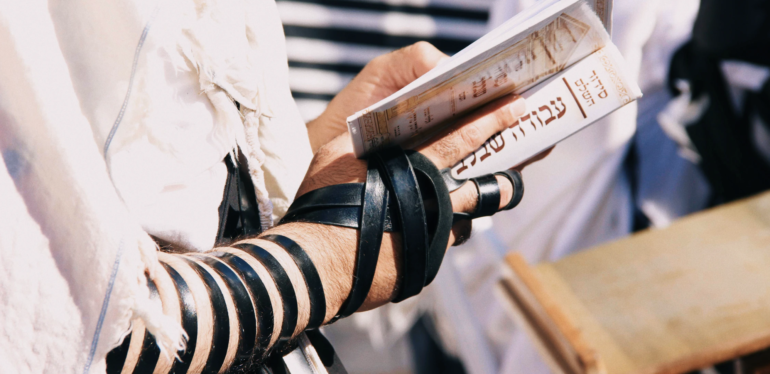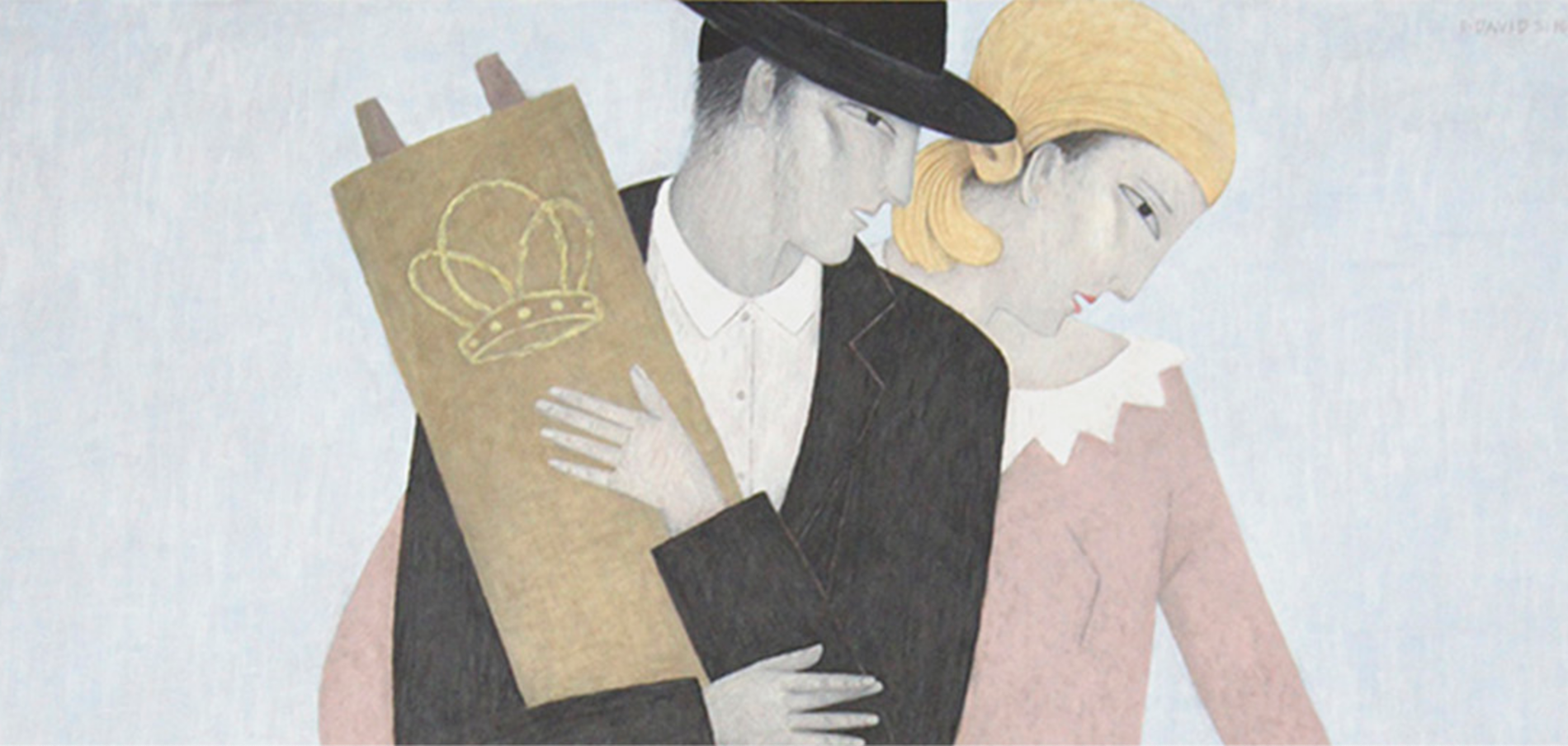
Why Do Orthodox Jews Rock When They Pray?
Dear JITC-
Why do Orthodox Jews rock when they pray?
Thanks,
Shawn
Dear Shawn-
Yes, Orthodox Jews rock. We rock so hard.
The swaying to which you refer is called shuckeling, from the Yiddish word shuckelen meaning to shake. While a widespread – though not universal – practice (it’s not the practice of Sefardim, for example), its exact origins and reasons are not known for sure.
Swaying in prayer is alluded to in the Talmud. Tractate Brachos (31a) tells us that Rabbi Akiva would start davening in one corner of the room and finish in the other corner, gradually nudged there over the course of time by the force of his shuckeling. It’s not clear whether Rabbi Akiva was the only one who shuckeled in those days or whether he just happened to do so particularly vigorously; all we know is that he did it.
The Kuzari (Rav Yehuda HaLevi, 12th century) offers two explanations for this practice. First, he says that he has heard that shuckeling is done because it generates “natural heat.” This has been understood to mean either physical warmth or emotional “heat,” i.e., zeal. The Kuzari rejects this hypothesis in favor of the idea that the practice evolved due to the shortage of books (which was commonly the case before the printing press, when all books were handwritten). Ten or more might read from the same book, so they would constantly be bending and turning to read a passage and then to get out of the way. Others copied this practice when they saw it, continuing to do so even when book shortages did not require it.
The Rema (16th century) cites the Avudraham (14th century) that people sway when studying Torah because the people trembled when the Torah was given (see Exodus 20:15); they do so when praying as per Psalms 35:10, “all my bones will proclaim, Hashem, who is like You?” (OC 48:1)
The Zohar on parshas Pinchas uses shuckeling in a metaphor based on Proverbs 20:27, “The soul of man is a candle of God.” A candle’s flame constantly flickers in its attempts to free itself from the wick and ascend. Similarly, our souls struggle to escape the physical world and to return to their Divine source. This is why, during prayer and study, our bodies sway like flickering flames.
The Baal Shem Tov (18th century) gives a surprisingly graphic interpretation: shuckeling resembles the act of marital intimacy and prayer is when we try to connect ourselves (metaphorically) with God’s Presence. (Tzavaas HaRivash)
While most authorities permit or actively encourage shuckeling, there are those who oppose the practice. Shmuel HaNagid (11th century) criticized shuckeling in a poem as degrading to Torah study: “We came angry into the house of God. If only we had taken a wrong turn, for behold the rabbi and the students bobbing their heads like a tamarisk in the wilderness.”
The bottom line seems to be as the Aruch HaShulchan writes (OC 48:3): Some shuckel in prayer because it helps their concentration; others don’t shuckel because they concentrate better when standing still. The important thing is that we act however best enhances our prayer experience.
Sincerely,
Rabbi Jack Abramowitz
Educational Correspondent
Follow Ask Rabbi Jack on YouTube
If you found this content meaningful and want to help further our mission through our Keter, Makom, and Tikun branches, please consider becoming a Change Maker today.








2 comments
Sort by
When i say this article. I literally said out loud. $50 they don’t know! I read the article and YEP They don’t have a damn clue. This refers to Mt Sinai at hearing G-d’s voice the 2 times. Our souls burst out of our body and our bodies died, our souls rushed and clung to Hashem. But Hashem spoke a 2nd time and our Souls rushed back into the bodies and it was painful for us! This represents the LOVE and FEAR of Hashem. When you Shuckle that is what you are doing! WHY AM I SURROUNDED BY RABBI AND PEOPLE WHO DO NOT KNOW THESE THINGS???????????????????
Interesting. We cite the opinions of the Kuzari, the Rema, the Avudraham, the Zohar and the Baal Shem Tov. Would you count them among the “people who do not know these things?” You also cite an opinion but you don’t source it. Who said what you think is the One True Answer? Even if you can cite a source, what makes your opinion more authoritative than that of the Kuzari, the Rema or the Zohar?